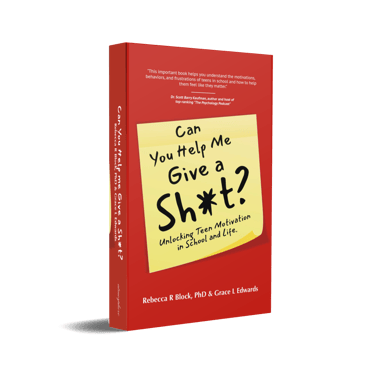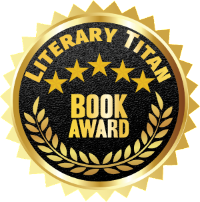Getting at the root, part II: Why writerly identity matters in building strong writers
Part I of this post series explored the root cause of high school and college students writerly struggles. This digs into the specifics of students' writerly identity
WRITING ADVICESTUDENT MOTIVATION
1/14/20244 min read


If you haven't already read part I of this series, or read why the ABCs of motivation matter for student learning, you may want to hit those posts first. But if you're a jump in and figure it out later kinda person, go for it and just keep reading.
Applying the ABCs of sustainable motivation to writing instruction
I understood how to shift my approach to helping my students learn to write very differently once I learned more about how to support lasting motivation (my own and my students).
Ability. I took general shots at dismantling the commonly held beliefs about writerly ability, like the already mentioned “shitty first drafts” excerpt from Anne Lamott's book Bird by Bird. But I didn’t make space to dig into the individually limiting beliefs students had about their abilities. As a young professor, I missed opportunities to pair readings like Lamott's essay with activities that could have built belonging in my classroom as well (discussed next), where students could have felt less alone in their hidden writing “shame” if they’d realized how many other students held those same negative histories and beliefs about their writing abilities.
Belonging. I typically held conferences early each semester to get to know my students 1:1. Meeting with students directly helped them be more willing to talk in class, ask questions, or admit when they didn’t understand something. However, I initially didn't leverage the power of them forming connections with their peers, and forming a collective bond over trying to learn something challenging together (Nina has powerful stories about this in the book, for those looking for strong examples). That was a missed opportunity that would have helped some of my students who fell through the gaps, especially at a commuter college like the one I taught at, where many students didn’t feel much in-campus belonging to begin with.
Choice. I emphasized choice as much as I could get away with within my course. But because many students didn’t fundamentally care about these choices (in genre, topic, research method, and so on), it didn’t matter to them. If my younger self had invested more time building ability and belonging before jumping into these choices, it would have had a bigger impact.
Relevance and goals. While I had focused on giving my students career-related reasons to find writing relevant, that didn’t work for all of them, because not all of them had career-related goals. Now, when I work with students, I spend time initially getting to know them better – and specifically getting to know what hobbies, interests, or dreams they have that might benefit from them learning to be an effective writer, even if they don’t realize it yet.
How teens can boost their writing motivation
Not all writing instructors, at the high school or college level, have the time or inclination to use strategies that help students build their motivation to learn to write. However, teens can diagnose what’s missing for themselves, or get help in that analysis from their parents or other concerned adults. (Hint to parents: don’t come at your teen with this article unless they’ve asked for help. If they don’t feel a strong relationship with you first, they won’t be able to hear your ideas, however valid, about what might help them be more interested in learning to write.) Once there's a strong relationship, here’s some questions that can help teens spot what they need to feel prepared to write well:
Abilities:
Do you feel like a writer? Why or why not?
Do you think good writers are born or made? Why?
Can you think of examples where you made something—words, pictures, or sounds—that other people received well? How did that happen? (If you can’t think of anything right away, push the limits of your thinking: text messages, social media posts, art work, and so on)
Belonging:
How do you feel about your current English / writing teacher? Do you think they’re invested in your success, not just as a student in their class, but overall?
How do you feel about the students in your current English / writing class? Do you like working with any of them on school projects?
Choices:
What options do you have about your writing assignments at school? Do any of those options seem meaningful to you? Do any of them help you?
When’s the last time you wrote or created something just because you wanted to? (Remember, social media posts, texting, art, and music all count here!)
How do you feel about the things you create just because you wanted to? How do other people feel about them? Why?
How do you feel about the writing you create for school? How do other people feel about them? Why?
Bringing it all together:
Which of these areas felt the most painful or numb to you as you thought about the questions: abilities, belonging, or choices? If they all felt bad, start with belonging—that’s always a crucial foundation. Then move onto abilities, and then to choices.
What’s one thing you could try to make things a little bit better in that area?
If it was abilities, try focusing on somewhere you do get positive feedback for what you create. Can you use that to shift your thinking from, “I’m not a good writer” to “I haven’t liked writing for school” and believe it?
If it was belonging, try focusing on how you could strengthen one relationship in your class, either with your teacher or with a peer.
If you feel strong in your abilities and your sense of belonging, can you advocate to your teacher for more options that would matter to you? For example, can you propose a writing project where students get to write in a genre or medium that interests them, and teach the rest of the class about that genre/medium?
If you think your teen might benefit from some 1:1 support with their writing, feel free to reach out. I see a limited number of high school and college students each month who want to build their writing skills.
Socials
Workbook of activities to build lasting motivation just for newsletter subscribers




